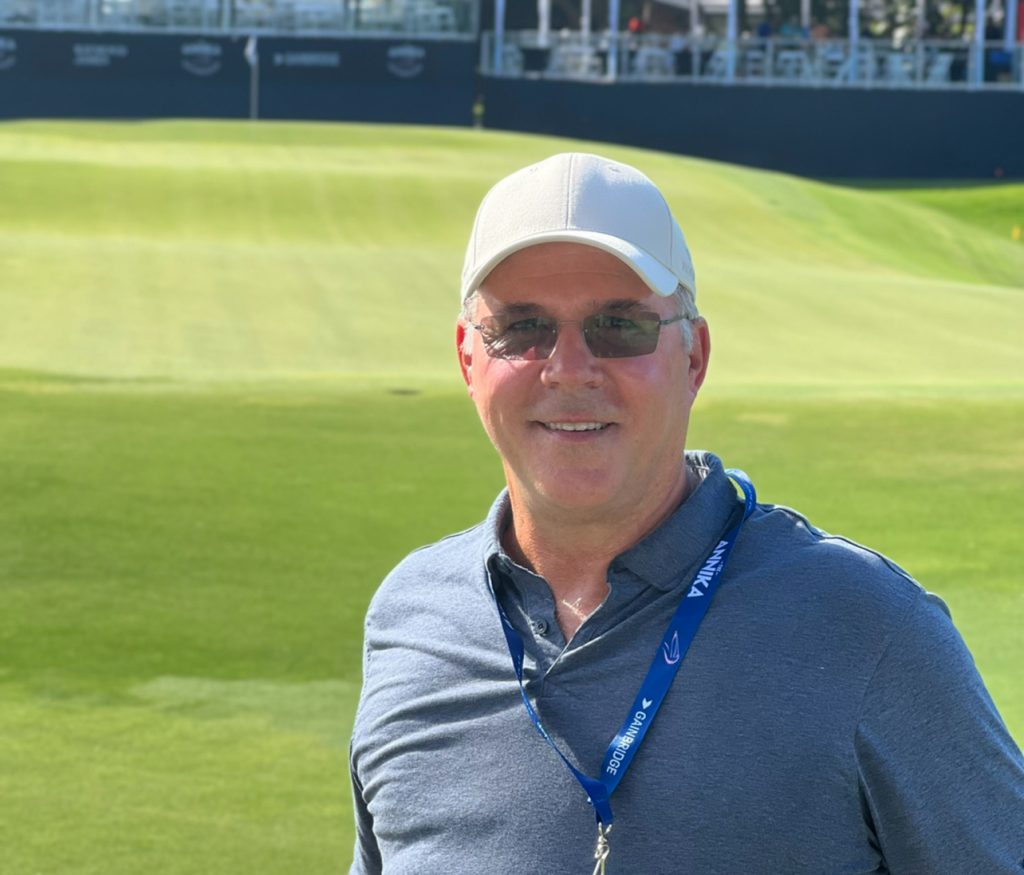While the risk of breast cancer is relatively low for men, the odds go up for those who carry the BRCA2 gene mutation.
About a year ago, Ben Porch, 59, found himself in the latter category, diagnosed with male breast cancer after a routine mammogram.
I was super lucky. My cancer was caught very early, and after surgery and hormone therapy, I’m a survivor. I now encourage others with a family history of breast cancer to get genetic testing and, if they’re at risk, receive regular screenings.
In my case, they caught it before it formed a lump, and they were able to remove it all before it got into the lymph nodes and spread.
My older sister, 55, died in 2019 after her second battle with breast cancer. It was uncommon to do double mastectomies when she first battled cancer in the early ‘90s. It could have saved her life.
A year later in 2020, my father, 80, noticed a lump in his chest while toweling off after a swim. He was soon diagnosed with male breast cancer.
After that, the entire family got tested for gene mutations that increase the risk of developing breast cancer, prostate cancer, pancreatic cancer and melanoma. Our family used the Color Genetics test kit.
My father, younger brother and I tested positive for the BRCA2 gene. I began having annual mammograms. My results were clear for the first two years. Then, in March 2023, something suspicious showed up. I went in for the mammogram, and when it was over, normally they’d say, ‘OK, thanks. We’ll send you the results.’ But this time, they said, ‘Could you sit here and wait for a minute? They might want more imaging.’” I was soon released and thought I was in the clear until receiving a note saying I needed to schedule a biopsy. The biopsy occurred in April 2023 and the pathology report confirmed my fears. I had breast cancer.
I was referred for treatment to Dr. Angela Keleher, director of breast surgery at Tampa General Hospital and assistant professor of surgery in the USF Health Morsani College of Medicine, and her certified physician assistant, Marlee White, who specializes in breast surgery.
They talked to me like I was a human being going through something traumatic. They made me feel like they understood what I was going through and that they would be with me through the process.
Dr Keleher said, “That comes from caring. We treat our patients individually, the whole person, and we get to know them, the Physician Assistants, and the surgeons together.”
PA Marlee White said “It’s essential to provide compassion. Patients come in and they’re scared. If you can bring that friendliness and that bedside manner as well as your skill, I feel like that’s why people want to continue to see us. We’re there for the patient.”
I had surgery in May 2023. Keleher removed the cancerous tissue and Dr. Jared Troy, a board-certified plastic surgeon and assistant professor of surgery in the USF Health Department of Plastic Surgery, handled the reconstruction.
Dr Keleher said, “Cosmetic considerations are just as important for male patients as female. Men in Florida, for instance, are more likely to go shirtless at the pool or the beach. That’s why it’s important to listen to their expectations for not only removing the breast, but also for what they want to look like afterwards, for both men and women.”
After the surgery, Dr. Troy provided me a list of tattoo artists his previous patients recommended that specialize in restorative tattoos. I selected Samantha Roberts of Mother Ocean Studio in Gulfport, Fl, just west of downtown St. Petersburg, FL.
Since my cancer was caught so early and because of the pathology of my cancer tissue, I did not have to undergo radiation or chemotherapy. Instead, I was prescribed Tamoxifen by Dr. Victoria Rizk, a member of Tampa General’s Oncology Department. Tamoxifen inhibits hormones from fueling the growth of cancer cells.
My father, who underwent Chemo and Immunotherapy because of a different pathology in his cancer cells, is also a survivor. He now recalls other male family members who may have had the disease but were undiagnosed. It brought home the importance of genetic testing for anyone with a family history of breast cancer.
The lifetime risk of breast cancer is only about 1 in 726 for men in the U.S., compared to 1 in 8 for women. But for men who carry the BRCA2 gene mutation, those odds go up to about 20 to 70 in 1,000. My advice is to do genetic testing. If you have that mutation, even if you don’t develop cancer, there is a big chance you’ll pass it to your children, who should also be tested. And if you’re positive, do the scans.
I am very grateful for the care I received and made a gift late last year to the Breast Clinical and Research Integrated Strategic Program (CRISP) Operating Fund at USF Health.
I thought if I donated, that would help them diagnose other patients in similar situations or help make their surgical procedures easier with the latest advanced technologies.
I wanted to express my gratitude for how well they treated me, making what was a difficult situation as positive as it could be.
I’ve told friends and colleagues that knowledge is power. To that end, I accepted invitation to be interviewed on our Tampa local Channel 8 about my cancer journey. This is a link to the video segment: https://www.wfla.com/bloom-tampa-bay/male-breast-cancer-survivor-ben-porch-shares-his-personal-journey/
Thank you to WFLA for allowing this story to be used.

